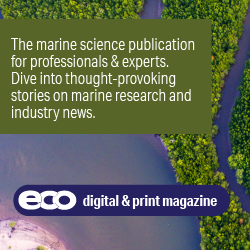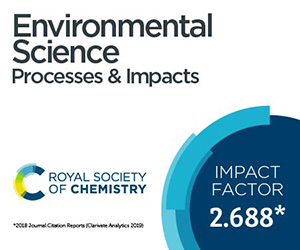Keynote Speakers
Please Note: Times listed below observe the Eastern Time Zone (ET)
Monday, March 22 | 11:30am–12:30pm ET
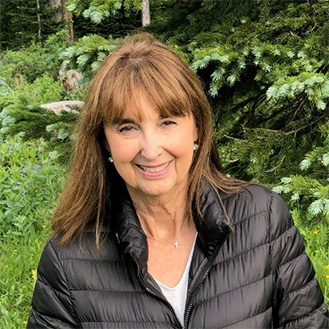
Virginia Burkett, Ph.D.
Chief Scientist for Climate and Land Use Change (CLU), U.S. Geological Survey, Many, LA
“Climate Change and Sea Level Rise: A Synthesis of Current Scientific Understanding and Implications for Low-Lying Coastal Systems”
Virginia Burkett is the Chief Scientist for Climate and Land Use Change at the U.S. Geological Survey. She served as Chief Scientist for Global Change Research at the USGS during 2006-2014 and as the USGS Associate Director for Climate and Land Use Change during 2015-2017. Burkett was appointed Co-Chair of the U.S. Global Change Research Program in 2016 and served as Chair during 2017-2019. Burkett is the United States’ alternate representative to the Executive Committee of the international Group on Earth Observations, which coordinates the collection and delivery of satellite and in-situ Earth Observations from 111 nations. She is co-chair of GEO’s Climate Change Working Group and was the head of the United States’ delegation to GEO’s Americas Caucus in 2019 and 2020. In 2020 she was appointed to Louisiana Governor’s Climate Initiatives Task Force and is Co-Chair of its Science Advisory Group.
Prior to her federal service, Burkett was Secretary/Director of the Louisiana Department of Wildlife and Fisheries, where she had formerly served as Deputy Secretary. She has also directed the Louisiana Coastal Zone Management Program and served as Assistant Director of the Louisiana Geological Survey.
Burkett has published extensively on the topics of global change and low-lying coastal zones. She was as a Lead Author of the United Nation's Intergovernmental Panel on Climate Change (IPCC) Third, Fourth and Fifth Assessment Reports and the IPCC Technical Paper on Water. She was a Lead Author of the First, Second, and Third U.S. National Climate Assessments and she served on the Federal Steering Committee for NCA4 (2018). She co-led the sea level rise scenarios team and report for NCA3. She has co-authored climate impact assessment reports for The Wildlife Society, the United Nations Convention on Biodiversity, the Everglades Task Force, the U.S. Department of Transportation and the National Oceanic and Atmospheric Administration.
Burkett has been appointed to over 70 Commissions, Committees, Science Panels and Boards during her career. She is a Senior Editor of the journal Regional Environmental Change and she serves on the Editorial Board of the journal Ethics in Science and Environmental Policy. Burkett received her doctoral degree in forestry from Stephen F. Austin State University in Nacogdoches, Texas in 1996.
Monday, March 22 | 6:30pm–7:30pm ET
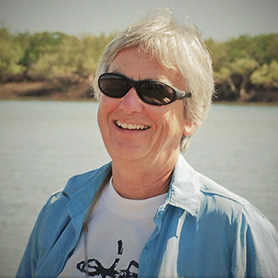
Dr. Ilka “Candy” Feller
Senior Scientist, Smithsonian Environmental Research Center, Washington, DC
“Causes of a Mangrove Dieback in the Galapagos and its Consequences for the Mangrove Finch”
Candy Feller is a mangrove ecologist. She was the Principal Investigator in the Animal-Plant Interaction Laboratory at the Smithsonian Environment Research Center from 1999 until Nov. 2018, when she retired and transitioned to an emeritus appointment at the Smithsonian Institution. Candy has a B.A. in Biology from the University of North Carolina and a Ph.D. in Biology from Georgetown University. Her research is focused on the biology of animal-plant interactions in mangrove ecosystems. She maintains her lab at SERC and plans to continue to work on mangroves for the foreseeable future.
She is kept busy by field work in Florida, Louisiana, Texas, Mexico, Belize, Galapagos, Panama, Australia and New Zealand where she and her collaborators have established a network of 30 or so long-term fertilization experiments along latitudinal and tidal gradients to investigate interactions between nutrient over-enrichment and climate change. She is currently obsessed with mangroves in the Galapagos.
Prior to her job at SERC, Candy was a Scientific Illustrator from ca. 1976 to 1988. She drew insects for the Department of Entomology, marine algae for the Department of Botany, and mangroves and other marine things for the Department of Invertebrate Zoology.
Tuesday, March 23 | 11:30am–12:30pm ET
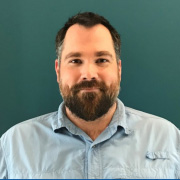
Stuart Brown
Coastal Resources Scientist Assistant Administrator, Planning and Research Division, Coastal Protection and Restoration Authority (CPRA), Baton Rouge, LA
“The Louisiana Coastal Master Plan: Science-Based Long-Term Planning in Coastal Louisiana”
Wednesday, March 24 | 11:30am–12:30pm ET
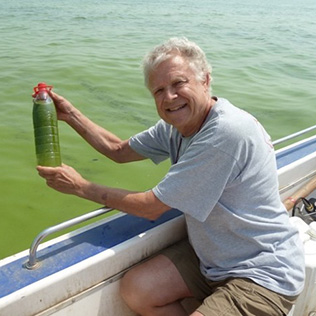
Hans W. Paerl, Ph.D.
Kenan Professor of Marine and Environmental Sciences, University of North Carolina - Chapel Hill Institute of Marine Sciences, Morehead City, NC
"Mitigating Harmful Cyanobacterial Blooms in a Hotter, Hydrologically More-Extreme World"
Thursday, March 25 | 11:30am–12:30pm ET
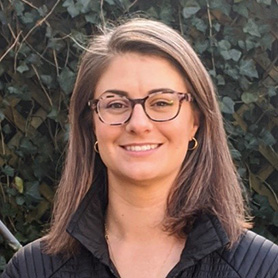
Ellen Herbert, Ph.D.
Ecosystem Services Scientist, Conservation, Ducks Unlimited, National Headquarters, Memphis, TN
“Investment in Wetland Conservation - The Ducks Unlimited Mission”
"Wetlands in a Changing Climate"
